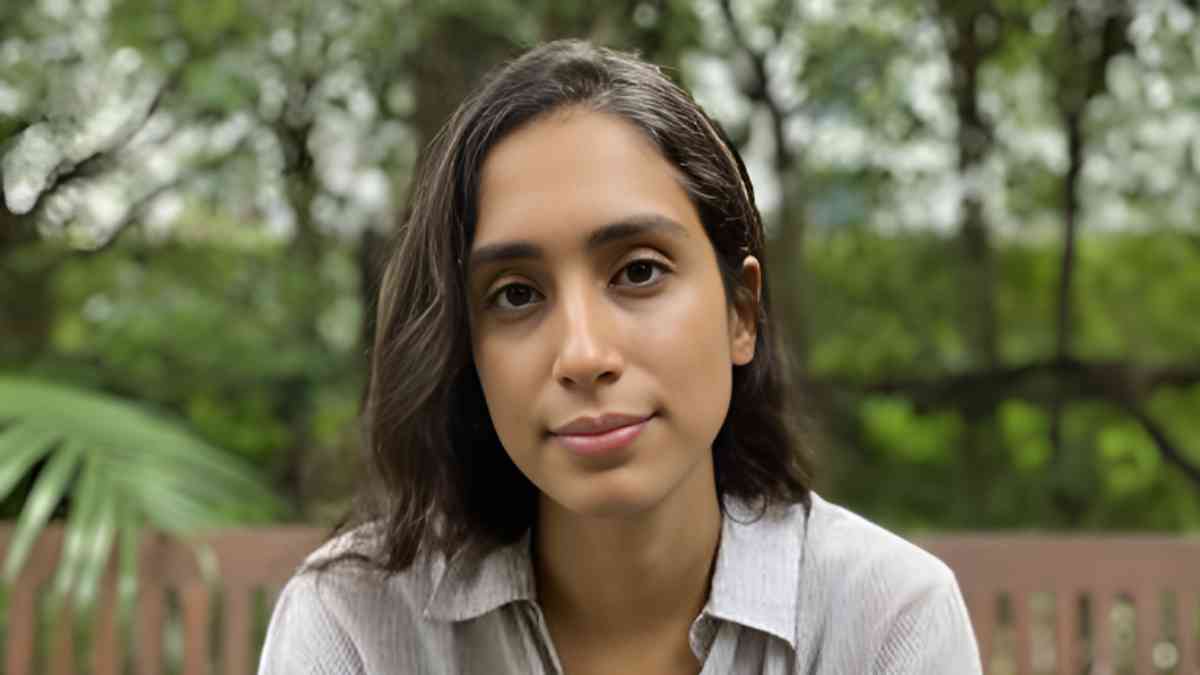Shaan Sahota: The Doctor-Turned-Playwright Challenging Narratives Through Medicine and Theatre

In an age where careers are often singular and rigid, Shaan Sahota is a refreshing anomaly. A junior doctor working on the NHS frontlines and a rising star in British theatre, she seamlessly merges the worlds of medicine and storytelling. Through her powerful plays and real-life experiences, Sahota tackles some of society’s most pressing issues—ranging from healthcare inequalities to family conflict—offering audiences a rare dual-lens perspective rooted in both science and humanity.
Early Life and Education
Shaan Sahota’s path to dual prominence began in a household that likely valued both intellect and responsibility. Raised in the UK within a Punjabi Sikh family, she was acutely aware of the expectations placed upon children of immigrants—to strive, to contribute, and to succeed.
Initially pursuing an academic path, Sahota read History and Spanish at the University of Oxford. Her love for stories—whether those of empires or personal revolutions—clearly manifested even at this early stage. After completing her undergraduate degree, she made a dramatic shift and undertook a medical degree at the University of Cambridge. It was here that her understanding of the human condition deepened, not just as a reader of history, but as a future doctor engaging with living, breathing stories every day.
Medicine: More Than Just a Career
Sahota’s work as a junior doctor in London, particularly during the COVID-19 pandemic, was not merely about prescriptions and procedures. She served in the Intensive Care Unit (ICU), witnessing daily what many only heard about on the news. The trauma, isolation, and sheer weight of those hospital shifts imprinted something unforgettable upon her. It’s not surprising that such raw, emotional experiences later formed the backbone of her audio-drama, Under the Mask.
For Sahota, medicine is not just a job—it is a source of human insight. Her consultations, she once said, are like “monologues” where patients unknowingly perform their deepest fears, regrets, and desires. This interplay between clinical detachment and emotional resonance would later become one of her defining strengths as a playwright.
The Artistic Awakening: From ICU to National Stage
While many junior doctors struggle to find time for rest, Shaan Sahota carved out space for something else entirely: storytelling. Her debut play, The Estate, did not simply emerge from an idle creative whim. It was born out of observation, reflection, and necessity.
Set in a Sikh household, The Estate is a darkly comic yet politically astute exploration of inheritance, power, and family loyalty. The story unfolds as a dying father sparks conflict among his children—not only about land and legacy but also about identity and belonging. The play’s underlying tension reflects Sahota’s own cultural navigation: how to reconcile tradition with modernity, family with individuality.
The Estate was shortlisted for the 2020 Women’s Prize for Playwriting and selected for development through the Royal Court’s Longform Writers’ Group. It is now set to premiere at the National Theatre in 2025, directed by Daniel Raggett and featuring BAFTA-winning actor Adeel Akhtar.
Under the Mask: A Binaural Triumph
In the height of the pandemic, with theatres shuttered and isolation pervasive, Sahota pivoted creatively. Rather than wait for the stage to return, she brought her stories directly to listeners through Under the Mask, an immersive audio drama produced by Tamasha Theatre.
Using binaural sound to replicate the experience of being in a hospital ward, the drama pulls listeners into the heart of COVID-era medicine. Inspired by her own time in the ICU, it portrays the emotional toll on NHS workers—something rarely captured in news headlines. The piece was praised for its authenticity, intimacy, and emotional heft.
More than just a pandemic diary, Under the Mask was a meditation on purpose, grief, and resilience. It proved that even in silence, creativity can speak volumes.
Navigating Two Callings: The Doctor vs. The Dramatist
Balancing medicine and theatre is not a matter of convenience. Sahota has described this dual life as maintaining a “wife and mistress” relationship with her two vocations. Each demands time, passion, and emotional availability—but in vastly different ways.
Medicine grounds her in reality. It demands discipline, attention to detail, and the ability to suppress emotion when necessary. Theatre, on the other hand, invites her to unearth feelings, challenge authority, and dwell in ambiguity.
This internal tension, rather than causing burnout, appears to fuel her. Her writing is surgical in its precision yet poetic in its ambition. That’s a rare alchemy few writers possess.
Themes and Influence
Sahota’s work isn’t confined to personal catharsis. It is politically charged, culturally nuanced, and deeply intersectional. Themes of generational trauma, honour-based violence, gender roles, and immigrant identity weave through her narratives with understated urgency.
Before becoming a doctor, she worked with Southall Black Sisters, a non-profit advocating for survivors of domestic abuse and honour-based violence. This experience offered her yet another lens—one that has clearly informed her storytelling. Characters in her plays are often trapped between cultural expectations and personal freedom, mirroring the real-life dilemmas faced by many women she once supported.
Moreover, Sahota’s understanding of the body—its limitations, its endurance—adds a visceral quality to her scripts. Illness is not merely metaphorical; it is a constant, lived presence in her writing.
Cultural Identity and Representation
For British South Asians, representation in mainstream theatre has often felt like a box-ticking exercise. Sahota disrupts this narrative not by portraying token diversity but by embedding complex, layered South Asian characters into universal dramas.
In The Estate, characters are not reduced to their ethnicity. They are ambitious, flawed, manipulative, loving—and entirely human. This emphasis on authenticity has resonated with audiences from all backgrounds. It also challenges British theatre institutions to expand their understanding of what constitutes a “universal” story.
Her cultural fluency—being Punjabi, British, female, and a medical professional—gives her voice a rare credibility in multiple arenas. She isn’t simply writing for South Asian audiences; she’s writing from a place that makes those experiences impossible to ignore.
Recognition and Rising Status
As her profile rises, so too does her impact. In recent years, she has been featured by several leading arts organisations and publications. Her voice is increasingly sought after in conversations about cultural identity, healthcare systems, and the future of British theatre.
She was among the few playwrights funded through the prestigious Edgerton Foundation New Play Awards, enabling her to further refine The Estate ahead of its National Theatre debut. With more productions in the pipeline, including a new sci-fi romance titled The Amortal Coil, Sahota shows no signs of slowing down.
A Voice for the Future
In many ways, Shaan Sahota represents the evolving face of British culture: multifaceted, unapologetically complex, and unafraid to speak truth to power. At a time when the NHS is under strain and the arts sector fights for relevance and funding, Sahota stands at the confluence of two essential institutions—offering insights that are both urgent and enduring.
Whether on stage or in scrubs, she brings a level of empathy and courage that Britain sorely needs. Her work is not merely to entertain, but to heal, provoke, and inspire.
Conclusion
Shaan Sahota is not just a doctor or a playwright. She is a chronicler of modern life, stitching together wounds with both scalpel and pen. In a world that increasingly values specialisation, she dares to be a generalist—succeeding not by choosing between two paths, but by forging a bridge between them.
Her plays are not just performances; they are examinations. Her consultations are not just appointments; they are acts of listening. Through both, she reveals the many layers of being human.



